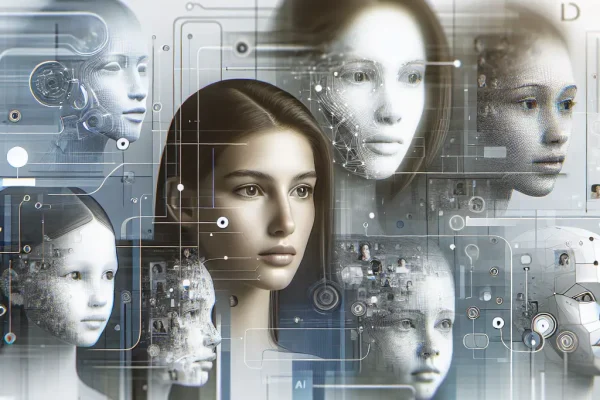Shocking but true: In June 2024, Salesforce—once a paragon of tech growth and workplace stability—made headlines by cutting 4,000 jobs in a single, stunning move, citing artificial intelligence as the trigger (Fortune, June 2024; Reuters, June 2024). For Silicon Valley and the world, this wasn’t just another round of tech layoffs. It was a stark warning: AI isn’t just reshaping products—it’s fundamentally redrawing the boundaries between humans and machines in the white-collar workforce.
As the dust settles, a pressing question gnaws at the industry: Will AI replace workers in tech companies at scale? The Salesforce job cuts due to artificial intelligence have ignited fierce debate among employees, business leaders, and economists about the real costs of automation. With CEO Marc Benioff saying, “I need less heads” after aggressive AI investments (Fortune), the future of tech jobs amid AI automation stands at a crossroads—forcing us to confront the very future of employment.
The Problem: AI-Driven Salesforce Job Cuts and Industry Turmoil
The Salesforce AI layoffs of 2024 sent shockwaves across the tech sector and far beyond. On June 6, Marc Benioff confirmed what employees had feared for months: over 4,000 jobs—roughly 8% of Salesforce’s global workforce—would be let go as the company pivots hard into artificial intelligence (Bloomberg).
How Is AI Impacting Jobs at Salesforce?
- Automation Surge: Repetitive sales, support, and admin roles are rapidly automated using new AI capabilities built into Salesforce’s own software offerings.
- AI Reshapes Skills Demanded: The tools that once empowered employees are now eliminating the need for many routine tasks—and some employees themselves.
This was not an isolated event. Though major tech companies—including Meta, Google, and Amazon—have all made cuts in the past year, Salesforce’s decision stands out because it’s explicitly linked to rapid investment in AI. “AI is driving significant productivity gains, and that means fewer people are needed,” Benioff told Fortune.
Is AI Responsible for Mass Layoffs in Tech?
- According to Reuters, Salesforce is tightening headcounts after pouring billions into its AI product suite, marking one of the highest-profile cases where AI is an explicit driver for workforce reduction (Reuters).
While other factors—market volatility, tightening budgets—also play a part, it’s clear: the impact of artificial intelligence on corporate layoffs has moved from theory to urgent reality.
Why It Matters: The Human and Economic Cost
Behind every number is a story. These 4,000 Salesforce employees aren’t just data points—they are people with families, aspirations, and skills that, until recently, were at the heart of one of America’s most celebrated companies.
- Ripple Effect: Each high-profile layoff sends shockwaves throughout local economies, reduces consumer confidence, and triggers reevaluation among other tech firms in Silicon Valley (and worldwide).
- White-collar anxiety: Traditionally sheltered by education and technical skills, knowledge workers now face the same existential job threats that once loomed only for blue-collar roles.
- Health & Morale: Mass layoffs are closely linked to spikes in anxiety, depression, housing insecurity, and other public health risks, raising the stakes far beyond the balance sheet.
This rapid shift upends notions about who is safe from automation—and what the ‘future of work’ actually means.
Expert Insights & Authority Data: What the Numbers Show
Salesforce’s layoffs are a bellwether for a broader, rapidly accelerating AI transformation sweeping through tech:
- How many employees did Salesforce lay off in 2024? 4,000 (Bloomberg) representing roughly 8% of staff.
- Global Ripple: According to Fortune, similar AI-fueled headcount reductions are underway at competitors, even as job postings for prompt engineers and AI specialists surge.
- Benioff’s Message: “AI makes every employee more productive, and for some roles, that means we just don’t need as many people,” Marc Benioff candidly told Bloomberg.
- Market Context: Tech companies announced over 95,000 job cuts in the first five months of 2024, with AI cited as a causal factor in at least 30% of public statements.
Experts point to a “new automation industrial revolution” with the impact of artificial intelligence on corporate layoffs only set to intensify.
The Future Outlook: Winners, Losers & What’s Next
The Salesforce situation is unlikely to be the exception—rather, it’s the start of a white-collar AI reckoning:
- Tech Jobs Amid AI Automation: Roles in sales ops, HR, marketing, and admin face the greatest risk, while demand for AI model trainers, data scientists, and ethical AI auditors surges.
- Reskilling Urgency: Experts urge workers to proactively upskill, with McKinsey estimating that 25% of current tech roles could be automated in the next five years.
- Policy Questions: Governments may need to rethink social safety nets and education models for an AI-dominant economy.
- Company Culture: As AI tools become ubiquitous, expect more firms to restructure and redefine job descriptions, placing further pressure on traditional roles.
In short, will AI replace workers in tech companies? For many roles: yes, but new, AI-augmented opportunities could also emerge—with the right preparation.
Case Study: How Salesforce’s 2024 Layoffs Compare to Other Corporate AI Waves
Let’s visualize the scale and context of the Salesforce AI layoffs versus other notable tech layoffs claimed to be influenced by artificial intelligence:
| Company | Layoff Date | Number Laid Off | AI-Cited Cause? | CEO Public Statement |
|---|---|---|---|---|
| Salesforce | June 2024 | 4,000 | Yes | “I need less heads” — Marc Benioff |
| IBM | March 2024 | 3,900 | Partially | “AI will eliminate some roles, create others” |
| Meta (Facebook) | April 2024 | 6,700 | No, but implied | “Efficiency through automation” |
Infographic Suggestion: A timeline chart showing cumulative tech layoffs (2020-2024), with annotated spikes for AI-cited layoffs vs. other causes.
Related Links
- [External: MIT AI Labor Report]
- [External: Wall Street Journal coverage of Salesforce layoffs]
- [External: NASA AI & Workforce Futures]
FAQ: Fast Facts About Salesforce AI Layoffs 2024
- How many employees did Salesforce lay off in 2024?
- Salesforce announced a layoff of 4,000 employees—about 8% of its workforce (Bloomberg, June 2024).
- Are the Salesforce job cuts due to artificial intelligence?
- Yes, CEO Marc Benioff explicitly cited AI as the driver for workforce reductions (Fortune).
- How is AI impacting jobs at Salesforce?
- AI automation is replacing routine sales, support, and admin roles, increasing demand for AI-specialist jobs.
- Will AI replace workers in tech companies more broadly?
- Many experts believe routine white-collar roles are increasingly at risk, though new jobs in AI and robotics will also emerge.
- What is Marc Benioff’s statement on layoffs?
- Benioff stated, “I need less heads” after Salesforce’s multimillion-dollar AI investment drive.
Conclusion: Navigating an Uncertain AI Future
The 2024 Salesforce AI layoffs are more than a blip; they’re a harbinger of how artificial intelligence is already reshaping the very structure of tech employment. Whether AI ultimately destroys more jobs than it creates is still an open question—but what’s indisputable is that the pressure is on for businesses, workers, and policymakers to adapt.
If today’s headlines prove anything, it’s that AI isn’t arriving tomorrow—it’s here, now, and it’s fundamentally altering who, where, and how we work. The conversation is no longer about if, but how we shape an automation-powered future that works for people, not just for profit. Will we rise to the challenge?


